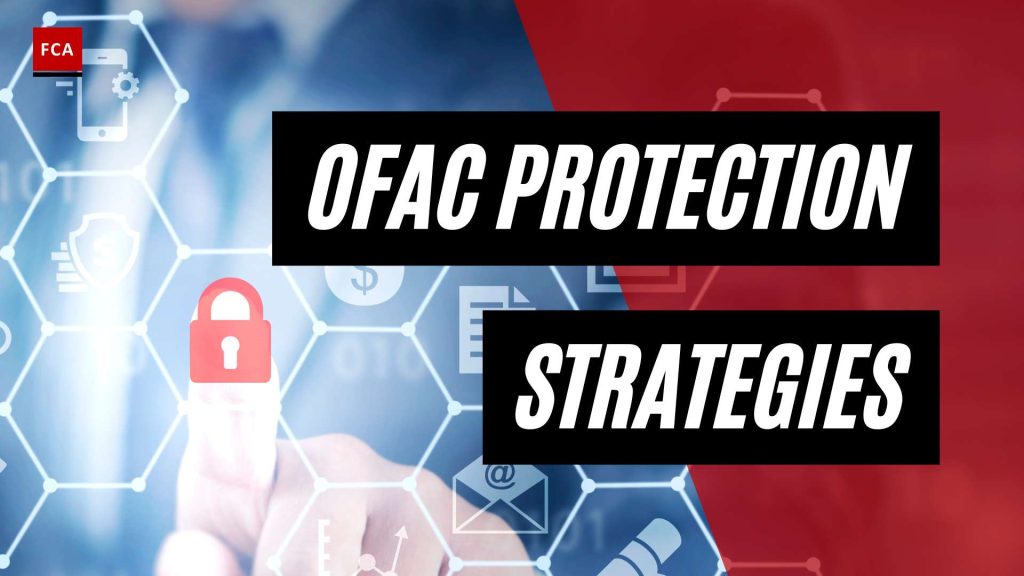Understanding the Role of OFAC
The Office of Foreign Assets Control (OFAC) plays a crucial role in the administration and enforcement of economic and trade sanctions based on the foreign policy and national security goals of the United States. Understanding the history, mission, and objectives of OFAC is crucial for professionals working in compliance, risk management, anti-money laundering, and anti-financial crime.
History of OFAC
OFAC’s roots can be traced back to the Office of Foreign Funds Control (FFC), which was established in 1940 following the German invasion of Norway during World War II. The FFC was tasked with preventing Nazi use of occupied countries’ foreign exchange and securities, as well as protecting the assets of other invaded countries (OFAC Treasury).
OFAC was formally created in December 1950 when China entered the Korean War, prompting President Truman to declare a national emergency. As a result, all Chinese and North Korean assets subject to U.S. jurisdiction were blocked.
OFAC’s Mission and Objectives
OFAC’s primary mission is to administer and enforce economic sanctions programs against countries, groups of individuals, such as terrorists and narcotics traffickers, and those involved in activities related to the proliferation of weapons of mass destruction. The aim of these sanctions is to accomplish foreign policy and national security goals (OFAC Treasury).
OFAC achieves its mission by blocking assets and restricting trade, thereby imposing significant economic pressure on the targets of its sanctions. The effectiveness of these sanctions programs relies heavily on the cooperation of private sector institutions, particularly those involved in international finance and trade.
OFAC operates under the umbrella of the U.S. Department of the Treasury and works in conjunction with other financial intelligence and enforcement agencies such as the Financial Crimes Enforcement Network (FinCEN) to safeguard the U.S. financial system from illicit use and combat money laundering and terrorism financing.
Understanding the role of OFAC is crucial for businesses, especially those operating internationally, as failure to comply with OFAC regulations can result in significant penalties. It’s essential for businesses to conduct regular AML risk assessments and stay updated on the latest OFAC sanctions to ensure compliance.
Functioning of OFAC
The Office of Foreign Assets Control (OFAC) plays a significant role in maintaining national security and shaping foreign policy. This is achieved through implementing and enforcing economic and trade sanctions against targeted foreign countries, regimes, terrorists, international narcotics traffickers, those engaged in activities related to the proliferation of weapons of mass destruction, and other threats to the national security, foreign policy, or economy of the United States. The functioning of OFAC can be broadly segmented into two main areas: administering and enforcing sanctions and licensing.
Administering and Enforcing Sanctions
OFAC is responsible for administering and enforcing economic sanctions programs, primarily against countries, terrorists, and narcotics traffickers. These sanctions can be comprehensive or selective, using asset blocking and trade restrictions to achieve foreign policy and national security objectives (OFAC Treasury).
The sanctions administered by OFAC are not arbitrary. They are based on US foreign policy and national security goals and are targeted at specific foreign countries and regimes, individuals, and entities that pose a threat to these objectives.
The enforcement of these sanctions involves various actions, including the freezing of assets, imposition of trade restrictions, and financial penalties. This robust enforcement mechanism helps to ensure that the sanctions have the desired effect and contribute towards achieving the set foreign policy and national security objectives.
OFAC Licensing
In addition to administering and enforcing sanctions, OFAC also manages a licensing process that allows US persons to engage in transactions that would otherwise be prohibited under the sanctions. This licensing process is an essential aspect of OFAC’s functioning as it provides a means for authorized transactions to take place with sanctioned countries and entities.
The licensing process involves the submission of an application to OFAC detailing the nature of the proposed transaction. OFAC evaluates these applications on a case-by-case basis, considering the nature of the transaction, the parties involved, and the potential impact on US foreign policy and national security objectives.
It’s important to note that obtaining a license from OFAC does not automatically authorize all transactions with a sanctioned country or entity. The license only covers the specific transactions described in the license, and all other prohibitions under the sanctions continue to apply.
In summary, the functioning of OFAC involves a dynamic balance between enforcing economic sanctions to safeguard national security and foreign policy interests, while at the same time allowing for authorized transactions through a licensing process. Understanding this functioning is key for businesses and individuals seeking to navigate the complex landscape of OFAC sanctions and ensure compliance.
Potential Risks and Penalties
When dealing with the Office of Foreign Assets Control (OFAC), it’s critical to understand the potential risks and penalties associated with non-compliance. Violations of OFAC regulations can have serious consequences, including both civil and criminal penalties.
Violations and Consequences
Any U.S. financial institution that doesn’t comply with OFAC regulations, such as maintaining or opening a correspondent or payable-through account for a sanctioned entity, can face severe penalties. For example, penalties can reach up to $250,000 or twice the value of the transaction, whichever is greater (Office of Foreign Assets Control (OFAC)).
In addition to financial penalties, criminal charges can also be filed against individuals and organizations that willfully violate these regulations. The potential consequences of such violations can be severe, with individuals facing up to 20 years in prison for willful violations.
Civil and Criminal Penalties
The penalties for violating OFAC regulations can be substantial. For civil violations, the fines can exceed several million dollars, depending on the specific sanctions program violated. These penalties are adjusted annually due to the Federal Civil Penalties Inflation Adjustment Act of 1990, as amended by the Federal Civil Penalty Inflation Adjustment Act Improvements Act of 2015.
Criminal penalties can also be imposed for willful violations. These can include financial penalties of up to $1 million, along with potential imprisonment.
| Violation | Civil Penalty | Criminal Penalty |
|---|---|---|
| OFAC Regulation Violation | Up to $250,000 or twice the transaction value | Up to $1 million |
| Willful Violation | Varies by program | Up to 20 years in prison |
It’s vital for businesses and individuals to comply with OFAC regulations to avoid these penalties. This includes conducting thorough AML risk assessments and understanding the guidelines set by international bodies like the Financial Action Task Force (FATF), International Monetary Fund (IMF), and World Bank Group. By understanding and adhering to these regulations, you can safeguard your business against financial risks and penalties.
Navigating OFAC Sanctions
Understanding and complying with the Office of Foreign Assets Control (OFAC) regulations is crucial for any business operating in the global market. Failing to do so can result in severe penalties, including fines and reputational damage.
Compliance with OFAC Regulations
OFAC administers and enforces economic sanctions programs primarily against countries and groups of individuals like terrorists and narcotics traffickers. These sanctions can be comprehensive or selective, employing strategies such as asset blocking and trade restrictions to achieve foreign policy and national security objectives (Source).
Prohibited transactions refer to trade or financial engagements where U.S. persons are not allowed to participate unless authorized by OFAC or specifically exempted by statute. The prohibitions may vary between programs as each program is based on different foreign policy and national security goals (Source).
To ensure compliance with OFAC regulations, businesses must:
- Regularly review the OFAC Sanctions List to ensure they are not dealing with sanctioned entities.
- Implement robust screening processes for clients and transactions.
- Conduct AML risk assessments regularly.
- Educate employees about OFAC regulations and the importance of compliance.
- Establish a comprehensive compliance program that includes policies, procedures, internal controls, and audits.
Evading Sanctions: What to Avoid
While sanctions programs usually provide exemptions for certain donated goods, particularly those aimed at alleviating human suffering, exemptions may not be universal across all OFAC programs. Those planning to donate goods should consult the legal section of the OFAC website to understand the regulations applicable to the specific target or target country for the donation.
When applying for the release of blocked funds or requesting licenses from OFAC to engage in transactions, it is essential to provide detailed information and supporting documentation. This thoroughness is crucial for a successful application process.
OFAC considers specific license applications on a case-by-case basis for transactions not covered by a general license. It is the policy of OFAC not to grant applications for specific licenses where a general license already exists (OFAC License Application Page).
Businesses should avoid:
- Engaging in transactions with OFAC-sanctioned countries and individuals without necessary licenses.
- Ignoring the need for risk assessments and audits.
- Neglecting employee training on OFAC regulations.
- Failing to implement and enforce an OFAC compliance program.
In conclusion, navigating OFAC sanctions successfully requires a comprehensive understanding of the regulations, effective risk management practices, and a strong commitment to compliance.
Applying for OFAC Licenses
As part of its mandate, the Office of Foreign Assets Control (OFAC) provides licenses for transactions that would otherwise be considered violations of the sanctions it administers. Understanding these licenses is crucial for professionals working in compliance and risk management fields.
General vs. Specific Licenses
OFAC offers two types of licenses: general licenses and specific licenses. General licenses permit certain types of transactions without the need for individuals to apply for a specific license. Notably, for travel to Cuba, general licenses outlined in the Cuba Assets Control Regulations (31 CFR part 515) may cover individuals, and specific applications to OFAC would not be required.
In contrast, specific licenses are granted on a case-by-case basis for transactions not covered by a general license. For instance, individuals who have had their funds blocked or “frozen” by a financial institution due to a potential link to OFAC-administered sanctions can apply for a specific license by selecting “Release of Blocked Funds” as the application type.
It is important to note that OFAC does not grant applications for specific licenses where a general license already exists.
License Application Process
The license application process is conducted online via the OFAC License Application Page. The application requires detailed information about the applicant and the transaction involved, as well as a thorough justification for why the applicant believes the transaction should be authorized.
In addition to its general and specific licenses, OFAC also provides information for individuals seeking to export agricultural commodities, medicine, and medical devices to Iran and Sudan under the Trade Sanctions Reform and Export Enhancement Act of 2000 (TSRA). This includes TSRA guidelines and application details (OFAC License Application Page).
The process of applying for an OFAC license is a critical step in ensuring compliance with U.S. sanctions laws. It is essential for professionals working in areas such as compliance, risk management, anti-money laundering, and anti-financial crime to be familiar with these procedures and guidelines to safeguard against potential violations and penalties. To further understand the nuances of global financial regulations and watchdogs, explore our articles on the International Monetary Fund (IMF), the World Bank Group, and the Financial Crimes Enforcement Network (FinCEN).
Impact of OFAC’s Work
The Office of Foreign Assets Control (OFAC) plays a crucial role in protecting the U.S. financial system from illicit use. This section explores the impact of OFAC’s work through a case study of sanctions against Russia and an examination of compliance in virtual currency transactions.
Case Study: Sanctions against Russia
OFAC’s effectiveness can be seen in its expansive sanctions actions against certain Russian entities and individuals pursuant to Executive Order (E.O.) 14024, among other authorities. These sanctions extend to virtual currency transactions, meaning that all U.S. persons must comply with OFAC regulations, whether a transaction involves traditional fiat currency or virtual currency.
In response to these sanctions, sanctioned Russian persons have often attempted to evade U.S. and international sanctions through various measures. As a result, U.S. persons, including firms processing virtual currency transactions, are advised to remain vigilant against circumvention of OFAC regulations and must take risk-based measures to ensure they do not engage in prohibited transactions (OFAC Treasury).
Ensuring Compliance in Virtual Currency Transactions
OFAC has set clear guidelines for U.S. persons, including virtual currency exchanges and service providers. They are prohibited from engaging in or facilitating prohibited transactions involving virtual currency if blocked persons hold an interest. This restriction applies to transactions with entities like the Central Bank of the Russian Federation, National Wealth Fund of the Russian Federation, or the Ministry of Finance of the Russian Federation.
Additionally, U.S. financial institutions are generally prohibited from processing transactions, including those involving virtual currency, with foreign financial institutions that are subject to the prohibitions of Directive 2 under Executive Order 14024 (OFAC Treasury).
For virtual currency industry participants seeking further guidance, OFAC provides a comprehensive resource titled “Sanctions Compliance Guidance for the Virtual Currency Industry.” This document provides further information on ensuring compliance with OFAC regulations in this sector.
These instances underline the critical role OFAC plays in safeguarding the financial system from abuse. By understanding and adhering to OFAC regulations, businesses can mitigate financial risks and contribute to the global fight against financial crime. For more in-depth analysis and guidance on compliance and risk management, review our resources on AML risk assessments.








